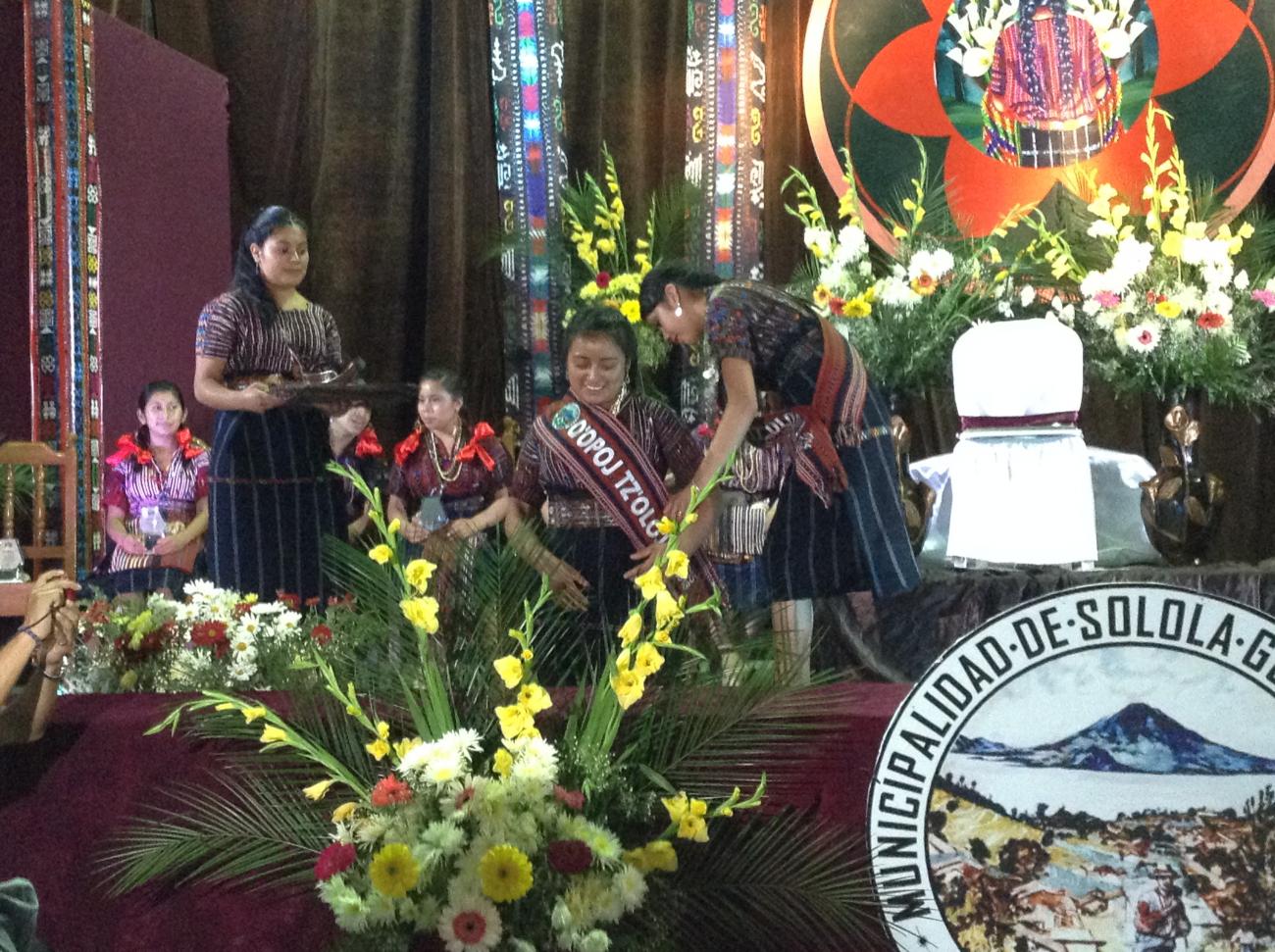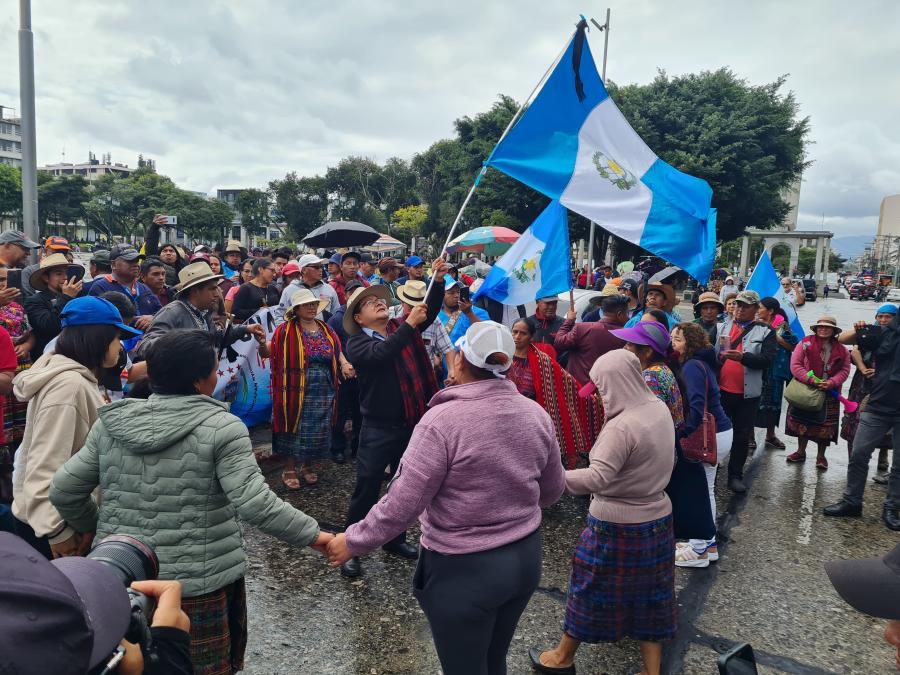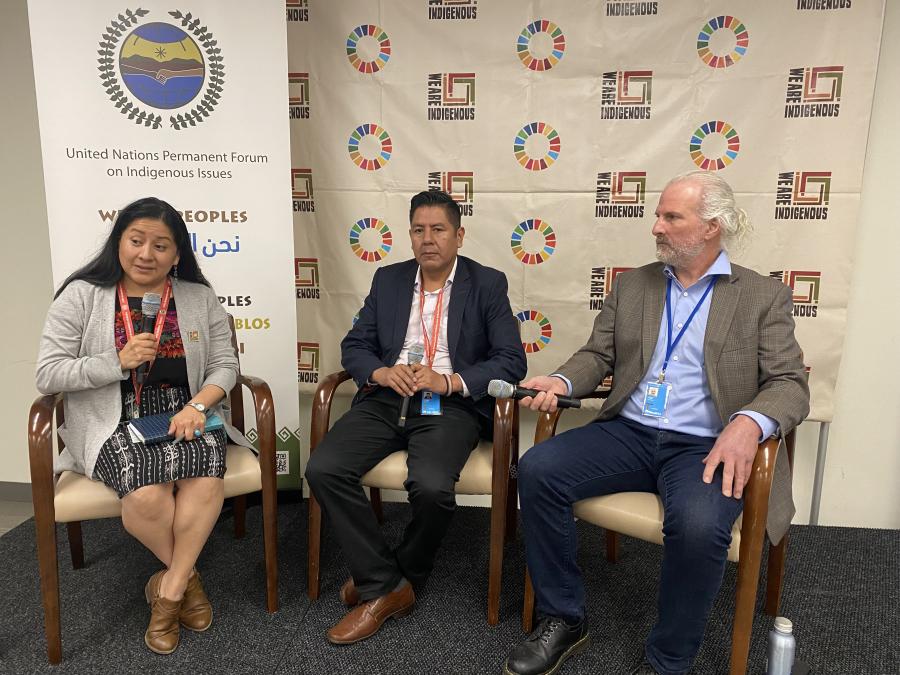


Translated as “Young lady of Sololá” or “Beauty of Sololá”, Q’opoj Tz’olojyá is a tradition that has been maintained for over 40 years in the department of Sololá, Guatemala. It is not a beauty contest rather a competitive recognition of the strongest and well-rounded Indigenous women of Sololá. The cultural event Q’opoj Tz’olojya’ takes place every July where between 15-20 young Indigenous women compete to prove they are the most knowledgeable about their language, dancing, and traditions, as well as events and issues effecting their communities.
To be elected Q’opoj Tz’olojyá as a young Indigenous woman is a great honor for families in Sololá. The criteria of selection involve a wide and strict range of characteristics that are put to the test over a period of two weeks prior to the one-day coronation event. The candidates must speak, write and read perfectly in their native languages without mixing any Spanish words. They are also requested to perform one of the traditional dances of their Indigenous communities and to demonstrate a talent, or tradition passed on by their elders. On the day of the coronation they are each asked to propose possible solutions to issues effecting their community such as: land and territory rights, Indigenous women’s rights, social development and language preservation. As one candidate stated, “There is so much corruption in our country, but this experience has demonstrated to me that the solution is in the leadership of indigenous women. May we be those leaders of change, the ones our country needs.” The jury is often composed of elders in the community, linguists, cultural leaders and Indigenous rights experts, all of whom are highly influential in their respective fields.
Similar events are held around the country and some have even been implemented to rescue dying indigenous languages. Such is the story of the Poqomam community of Palin, Escuintla, which began holding their traditional event, “Hija del Pueblo Poqomam.” The elders of the community realized they could be the last generation to communicate in their Poqomam language. The competition was part of an initiative to rescue their language and maintain its purity. As a result, schools and radio programs have increased education about the Poqomam language and the young woman elected as “Hija del Pueblo Poqomam” also encourages the younger generations to speak the language with the same eloquence that she exhibits. There has been much improvement, and much still to be achieved, but the elder generation no longer fears they will be the last Poqomam speakers in their community.
Rabín Ajaw’ is the highest title a young Indigenous women can possess in competitions such as these in Guatemala . Literally translated as “ the Creator’s daughter” or “the Creators favorite,” the title of Rabín Ajaw’ is a rigorous competition in which representatives from all over the country unite to proudly display their language and culture and compete to bring home the highly esteemed title. This year the 47th celebration of Rabín Ajaw’ was held in Cobán, Alta Verapaz with the participation of over 120 aspiring young Indigenous women. This years theme: “Indigenous women’s perseverance and strength during the Armed Conflict”
Unlike stereotypical beauty contests, these events have nothing to do with looks and everything to do with Indigenous identity. They bring more than admirable traditional clothing, candles and lights; they provide a rare and unique moment where Indigenous women are celebrated for their language, culture and knowledge. As one of the young Indigenous candidates to Q’opoj Tz’lojyá stated during her opening speech, “ I vow in respect to the heart of the sky, the heart of mother earth and the legacy of all our Indigenous grandmothers, mothers, young women and girls, victims of the armed conflict.”



